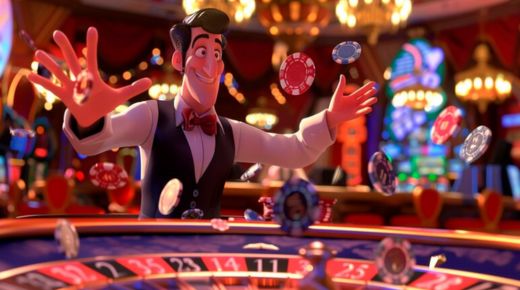Lotteries have captivated the human imagination for centuries, drawing millions of participants with the tantalizing promise of instant wealth and life-changing opportunities. But what drives this collective enthusiasm for games of chance? This exploration into the psychology of lottery 7 reveals the underlying motivations, hopes, and emotional responses that compel people to play, and what they truly hope to gain from their participation.
The Allure of Chance
At the heart of the lottery’s appeal is the allure of chance. The prospect of winning a significant sum of money with a small investment is undeniably enticing. Psychologically, this aligns with the concept of “gamblers’ fallacy,” where players believe that their chances of winning improve with each ticket they purchase. Even though each ticket has the same odds, the hope of beating the system and securing a life-altering win keeps players returning.
Moreover, the thrill associated with the lottery taps into our innate desire for adventure and risk-taking. Many individuals are drawn to the excitement of not knowing the outcome, which provides an adrenaline rush akin to other forms of gambling. This desire for excitement can often overshadow the rational understanding of the improbability of winning.
Aspirations and Dreams
For many, participating in the lottery transcends the mere act of gambling; it becomes a channel through which they express their aspirations and dreams. The thought of winning a jackpot evokes images of financial freedom, enhanced lifestyle, and the ability to fulfill lifelong dreams—be it purchasing a dream home, traveling the world, or providing for loved ones.
These dreams are often accompanied by narratives of winners who transform their lives after a big win, reinforcing the belief that such a fortune is within reach. The lottery thus becomes a form of escapism, allowing individuals to momentarily step away from their daily struggles and envision a brighter future.
The Role of Community and Social Influence
Playing the lottery is not just an individual experience; it often involves social dynamics. Many people participate in office pools or group tickets, creating a sense of camaraderie and shared excitement. This social aspect can amplify the psychological benefits of playing, as the experience becomes a collective event where hope and anticipation are shared.
Additionally, societal influences play a significant role in lottery participation. In many cultures, playing the lottery is viewed as a normal, even celebrated, activity. This normalization can contribute to the perception that participating is a common path to success, reinforcing the idea that “everyone is doing it.”
Emotional Responses and Rationalization
Emotions play a critical role in lottery participation. Hope is perhaps the most significant emotion, as players cling to the idea of a better future. This hope can often lead to irrational behavior, such as spending beyond one’s means in pursuit of that elusive jackpot. Cognitive dissonance can also come into play; when individuals rationalize their continued participation despite poor odds, they may convince themselves that their ticket could be the one to change everything.
On the flip side, the emotional fallout from losing can be profound. Players may experience disappointment, frustration, or even shame. Yet, many individuals choose to persist, fueled by the belief that their luck will eventually change. This cycle of hope, play, loss, and renewed hope can be psychologically taxing but is a common phenomenon among lottery players.
Visit for more info:https://www.lottery7club.in
Conclusion: The Lottery as a Mirror of Human Desire
In conclusion, the psychology of the lottery reveals a complex interplay of chance, hope, dreams, and social influences. It serves as a mirror reflecting our deepest desires for freedom, fulfillment, and adventure. While the odds may be stacked against players, the emotional and psychological rewards of participation often outweigh the risks in the eyes of many.
Ultimately, the lottery encapsulates a fundamental aspect of the human experience: the quest for a better life, driven by hope and the thrill of possibility. Whether viewed as a harmless pastime or a dangerous gamble, the lottery continues to captivate hearts and minds, drawing millions into its enticing web of chance. As long as dreams persist, so too will the allure of the lottery.
